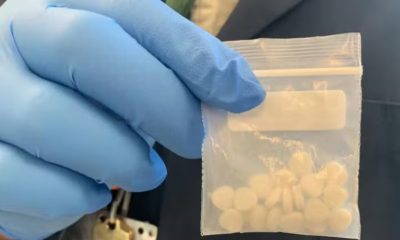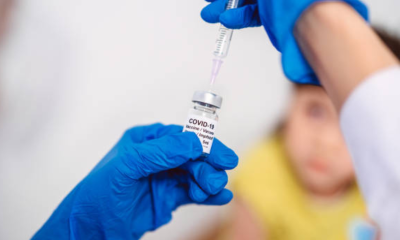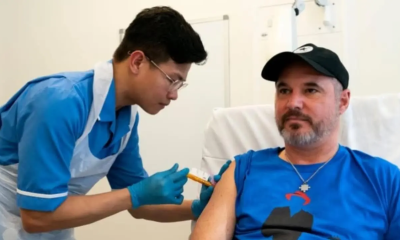Follow Us @
See tips for getting pregnant after age 40
At the end of the last century, it was possible to observe a true revolution in thinking regarding the concept of aging. Before, there was a certain concern about reaching 30 years old. Today, at 50 years old, he is still considered the peak of youth. This perception of ‘rejuvenation’, however, hides a silent aging in women: that of reproductive capacity.
“We are able to live with quality for much longer, but the ovaries' egg stocks continue to gradually decrease after the age of 35 and abruptly at the age of 40. So the woman will still live almost half of her life, after that, without getting pregnant with her own eggs and this has been a very worrying issue†, highlights Dr. Fernando Prado, specialist in Human Reproduction, clinical director of Neo Vita.
The specialist explains what is related to this change in values and perceptions and gives tips on how women can preserve fertility by freezing eggs.
1) The concept of ‘aging’ has changed a lot in recent times. People, especially women, feel young and active, even as they age. Does the aging of the reproductive system accompany this ‘change in concept’?
FERNANDO PRADO:Â Unfortunately, this is not true for the reproductive system, because genetically we are programmed not to live long. If we think about 100, 150, 200 years ago, what was the average age at which people died? It was unusual to reach 50, 60 years or even less if we go back in time. So there was no point in a woman getting pregnant after 40, because the child would be an orphan and there would be no one to take care of it. But all these developments that we have seen in the last decades have happened and there have been several, from basic sanitation, vaccines, antibiotics, medications, in short, everything that can make life longer and have quality for much longer, but ovarian stocks continue to run out around the age of 40, 50.
2) So, does the woman's apparent age not influence ovarian aging in any way?
The apparent age of the woman unfortunately has no relationship with the real, chronological age of the ovaries. So even if a woman who is 40 years old, is very well physically, appears to be 30 years old, 25 years old, or if we think of women aged 50 years old who appear to be 35, 40, the ovary, unfortunately, will have the her chronological age, both in the number and, mainly, in the quality of the eggs. And we know that after the age of 35 this quality starts to drop a lot, the quantity too, but especially the quality is greatly impacted as the woman's age advances.
3) Even if a woman takes care of herself, eats well, does physical exercise, is there a certain age at which her fertility rates will drop?
Yes, even for women who take care of themselves, eat well, who do physical activity, who do not smoke, who are not obese, for any health situation, well-being, quality of life , unfortunately the ovaries will suffer the damage caused by age. It is logical that the better this woman's quality of life, the slower this process. But we observe that especially after the age of 35 and after the age of 40, the quality of the eggs drops very quickly.
4) This change in thinking was also related to the rise of women in the job market, correct? What would be ideal, then, for women who do not yet want to have children, as they are at the height of their career, but do not rule out getting pregnant in the future?
Among the social changes that we saw mainly after the middle of the last century, one of them is the rise of women in the job market. Today, we see women in various leadership positions: they are presidents of companies, CEOs, top executives, presidents, prime ministers, in short, women have acquired their deserved space in society. But, on the other hand, this also had a social impact on family formation, because women were forced to make choices, mainly postponing plans to expand their family, usually until 35 or after 40. , which is exactly how long it will take to achieve stability, both in the family of having a stable relationship, as well as financial and professional; and it is very difficult for all of this to happen before the age of 35, 40. So, when a woman reaches these levels of stability and decides to get pregnant, it is no longer the best time for her ovaries, so we need to somehow revolutionize this whole story. What I call the second feminist revolution enters the scene. The first feminist revolution was the emergence of the contraceptive pill, back in the middle of the last century. With the contraceptive pill, a woman could choose when she did not get pregnant. And now the second feminist revolution allows another option: with egg freezing, women can now choose when they want to get pregnant. She no longer needs to have this dilemma, this dichotomy, of having to choose whether she will pursue a professional career or start a family. A woman can have both. She can leave her eggs frozen, preserve her fertility, while acquiring financial, emotional and career stability. Then, when all this has been established, she can rescue those eggs that were frozen and get pregnant and start a family a little later, with the same chances of getting pregnant as when she was 25, 30 years old.
5) What does fertility preservation involve?
Fertility preservation involves several aspects, from social and psychological issues to female empowerment, if we enter the sociological field and carry out a broader analysis of the entire story. But if we limit ourselves to medical issues, fertility preservation is a very effective treatment today, it is no longer considered experimental. We call it social egg freezing and this preservation guarantees that the woman can use these eggs in the near future, when she has already guaranteed her financial, emotional and professional stability, and that she no longer needs to stay in this he chooses between career and family.
6) What is the egg freezing process like?
The egg freezing process is relatively simple. Initially, some gynecological exams, pap smears, breast ultrasound, transvaginal ultrasound and serology tests (to search for infectious diseases) are necessary. If everything is normal, there is no contraindication for the woman to use the hormones, she will stimulate ovulation so that some eggs that she was already going to lose are rescued. So in that menstrual cycle, instead of the woman having just one egg, with stimulation through hormones, she will have 10, 12, 15, depending on her ovarian reserve. And this period lasts more or less 10 to 12 days, inducing ovulation. When the eggs reach the right size we want, and this is measured by ultrasound, we schedule the removal of the eggs with a minimally invasive surgical procedure, carried out with sedation. There is no stitch, no scar, no cut, because everything is done vaginally, through a transvaginal ultrasound; It is a relatively simple and relatively quick process, in a matter of 15 to 20 days it is ready.
7) What costs are involved in this?
There are some costs, some of which are covered by health plans and insurers, which are exams, but another part unfortunately is still not covered, neither by the SUS nor by health insurers, which are hormones. amounts that the woman will use to stimulate ovulation, the material for the in vitro fertilization laboratory, medical fees and the costs of freezing and storing the gametes, that is, from eggs.
8) Up to what age can she thaw her egg and have a safe pregnancy?
There is no exact age for a woman to use frozen eggs. In theory, if she is in good health, she can get pregnant even at a young age. However, we recommend that women use their eggs before the age of 50. Because after this age, the risks of pregnancy end up being great, mainly due to high blood pressure, gestational diabetes and premature birth. The risks to the mother's health end up being greater and consequently affect the course of the pregnancy, with risks also for the newborn. It is recommended that women freeze their eggs, but that they use it before the age of 50.
Dr. Fernando Prado: Gynecologist, obstetrician and specialist in Human Reproduction. He is clinical director of Neo Vita and medical coordinator of Embriológica. PhD from the Federal University of São Paulo and Imperial College London, London – United Kingdom.
Featured photo: pregnancy test (Reproduction/Freepik)
See tips for getting pregnant after age 40
Follow AFRILATEST on Google News and receive alerts for the main news about celebrities, soap operas, series, entertainment and more!
SHARE POST AND EARN REWARDS:
Join our Audience reward campaign and make money reading articles, shares, likes and comment >> Join reward Program
FIRST TIME REACTIONS:
Be the first to leave us a comment, down the comment section. click allow to follow this topic and get firsthand daily updates.
JOIN US ON OUR SOCIAL MEDIA: << FACEBOOK >> | << WHATSAPP >> | << TELEGRAM >> | << TWITTER >
#tips #pregnant #age
-

 Fashion3 months ago
Fashion3 months agoVogue Arabia cover welcomes Salma Hayek in an interview with Penélope Cruz
-

 Football3 months ago
Football3 months agoVAR points out Diego Costa's offense against the fourth referee
-

 USA today entertainment3 months ago
USA today entertainment3 months agoBeyonce with the single “Break My Soul” leads on Spotify Brazil
-

 Health and Fitness3 months ago
Health and Fitness3 months agoVaccine against the reappearance of skin cancer enters final testing phase
-

 USA today entertainment3 months ago
USA today entertainment3 months agoSZA, Future and DJ Khaled come together in collaboration
-

 News3 months ago
News3 months agoParents of former player Waleswska are pressured by widower to pay rent for the house where they live
-

 USA today entertainment3 months ago
USA today entertainment3 months agoLarissa Luz and Linn da Quebrada enchant at the Multishow Awards with a tribute to Elza Soares.
-

 Good News TV series3 months ago
Good News TV series3 months agoThe shocking reason behind the decision not to show dead characters in The Last Of Us episode revealed














































